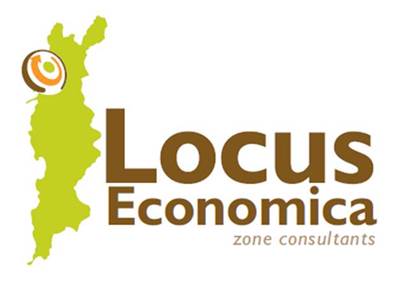Qatar
Qatar is the world’s second-largest exporter of natural gas, and its rich natural resource wealth has helped it achieve the world’s highest GDP per capita (PPP). It has invested its wealth to diversify its economy, expanding into transportation, finance, tourism, and manufacturing. Its economy was also no doubt boosted from hosting the 2022 World Cup.
That said, Qatar’s economy has struggled with a pair of recent challenges. First, its highly oil and gas-dependent economy was negatively impacted by the fall of oil and gas prices in 2014, highlighting the importance of diversification. Second, a blockade by its neighbors starting in 2017 has forced Qatar to become more economically self-sufficient.
Manateq, Qatar’s SEZ development company, is a crucial part of the country’s strategy to address these challenges. Established in 2011 and later aided by Locus Economica, it seeks to achieve a more diversified economy, promote homegrown innovation and industry, and foster an entrepreneurial culture. Since Locus Economica’s critical foundational work on its SEZ program, Manateq has invested $459 million in the development of Ras Bu Fontas SEZ, with Phase I completed in 2018 and Phase II due to be completed during 2019. A further $151 million was invested in worker housing, with a $110 million office building also built, and 24 pre-built sheds expected to open in 2019. 9 companies have so far committed to invest in the zone. In Um Alhoul SEZ, a marine facility was opened in March 2019, with 14 pre-built industrial sheds expected to open in 2020.
The “Qatar Free Zones” (QFZ) include the Ras Bufontas QFZ and the Umm Alhoul QFZ. They have attracted such investors as Google, DHL, Volkswagen, China Harbour and Inventus Power, as well as many others, with more than 50 registered projects and companies as of 2019.
Over US$ 200 billion in investment has been made in these zones. Furthermore, US$ 35 billion has gone towards building first line of Doha Metro which has now been completed and provides direct access to the Ras Bufontas. Ras Bufontas is targeted towards business sectors such as logistics, consumer products, light manufacturing, technology and pharmaceuticals, while Umm Alhoul, located by Hamad port, targets maritime industries, heavy manufacturing, emerging technologies, and logistics.
Both have been equipped with 5G capabilities, with internet speeds of up to 1GBps, and are looking to incorporate autonomous warehouses, drones, AI-based irrigation systems and smart customs/ insurance solutions to satisfy investors.


In 2014, Locus Economica was engaged by Buro Happold, Tanween and Manateq to help advise the government of Qatar on the establishment of three SEZs, each targeting selected industries to help Qatar diversify its economy away from dependence on the oil and gas industries. Qatar Economic Zone (QEZ) 1 will be located ...